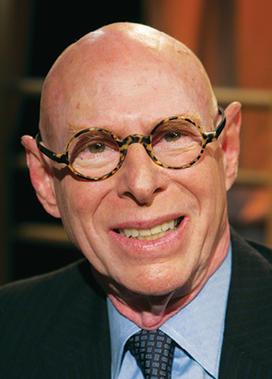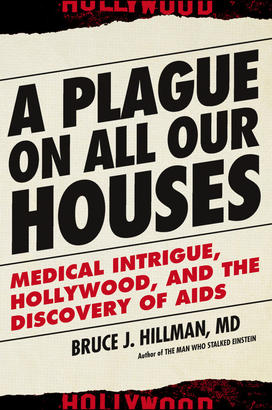Against a Glittery Hollywood Backdrop, Bruce Hillman ’69 Recounts a Medical Intrigue

The book: Michael Gottlieb was a young immunologist newly hired at the UCLA Medical Center when he first consulted on a case of four formerly healthy gay men who began to suffer from fever, weight loss, and infections. A Plague on All Our Houses: Medical Intrigue, Hollywood, and the Discovery of AIDS (University Press of New England) tells the story of how one doctor pieced together what other medical professionals had overlooked for a decade.
Gottlieb would go on to pen a 1981 article about his laboratory findings on AIDS in the New England Journal of Medicine, an article that is now considered one of the most significant to ever be published in the journal’s 200 years. Quickly after publishing, the young scientist became the face of the rising epidemic: His expertise was sought after by the media and the gay community — he was even Rock Hudson’s personal physician. Meanwhile UCLA’s medical establishment spurned the work, fearing it would tarnish the reputation of the medical center — a blow that compounded the struggle for federal funding for AIDS research during the Regan years. Thirty-five years later, medical advancements and public health campaigns have have nearly stopped the disease in its tracks.

Opening lines: “Dr. Michael Gottlieb lifted his eyes from the patient’s chart that he was reviewing and waved his fellow, Howard Schanker, into his tiny basement office. He shoved aside a short stack of journals to clear a space for his younger colleague to sit, then listened as Schanker’s Bronx-tinged voice detailed what he had learned about a patient he had discussed with Dr. Robert Wolf. Their conversation set in motion a chain of events leading to Gottlieb’s discovery of a new, previously undetected disease that in short order would engulf the entire world in a deadly epidemic that persists to the present day.”
Reviews: Booklist says, “A deeply fascinating, deeply sad book that will appeal to anyone with an interest in the history of modern science.”











No responses yet